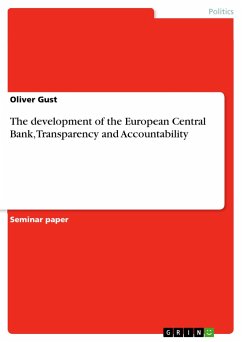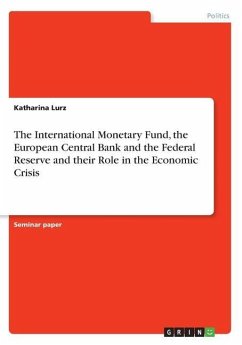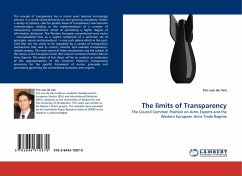Seminar paper from the year 2005 in the subject Politics - International Politics - Topic: European Union, grade: 2,0, Otto-von-Guericke-University Magdeburg (Political Sience), course: European Institutions, Decisions, Structures, language: English, abstract: For the purpose of the curse this paper will give a brief overview about the historical development of the European Central Bank and the predecessor institutions of the European Monetary Union. Therefore the author will select certain points in the path to the monetary Union in order to give a slight insight in the developments behind this powerful European institution. A short outline of the chapter will also be provided in the beginning of it.After the author has examined the chosen parts of the historical background with the conclusion that the integration process of the European Monetary Union is somehow exemplary for the integration movement in Europe itself, he will go over to the examination of the monetary strategy carried trough by the central bank. Again this investigation will have an introductionary character which also spears out the claim to be complete in the editing of the subject of matter. This section about the strategy of the central bank will shortly comprehensively explain the two pillar strategy and its advantages for the agents concerned. Followed from a section about transparency and accountability which will be introduced with some opening remarks as well, the paper will conclude with a revision of the applied arguments of the text and drawn upon this a short closing comment to the read paper. The paper will provide the reader with a basic knowledge about the development of the European Central Bank and additionally with some arguments which could be helpful in the discussion of the just mentioned subject.
Hinweis: Dieser Artikel kann nur an eine deutsche Lieferadresse ausgeliefert werden.
Hinweis: Dieser Artikel kann nur an eine deutsche Lieferadresse ausgeliefert werden.








